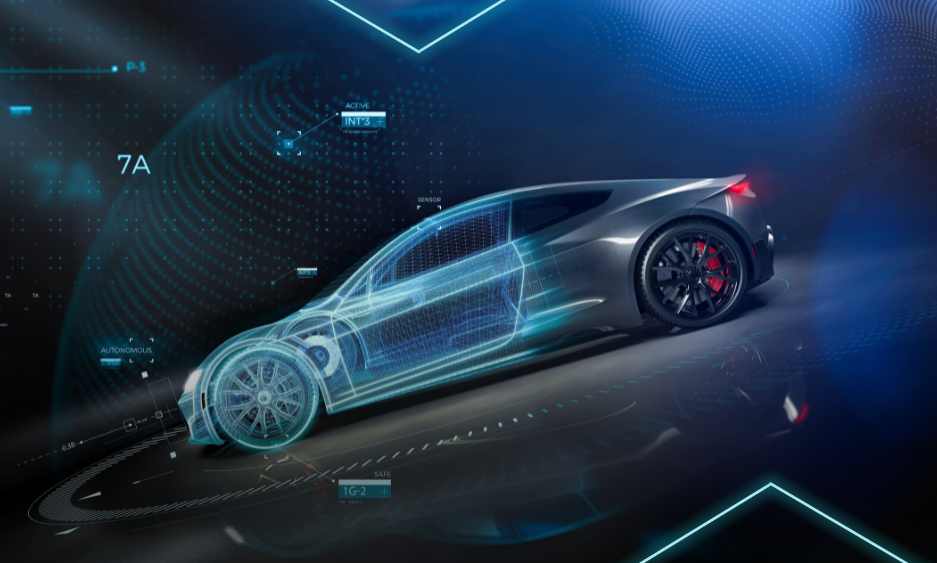The automotive industry is undergoing a fundamental transformation in 2025, with electrification, autonomous driving, and digital connectivity directly changing what skills companies need from their workforce. As EV market share reaches 15.3% in Europe and Chinese automakers gain nearly 8% of the market, recruitment strategies must adapt to new realities. This shift is creating urgent demand for specialised talent in software development, battery engineering, and AI—while traditional roles are being reimagined through technology-driven hiring processes that are reshaping how automotive companies compete for skilled professionals.
Shifting Market Dynamics in Automotive Recruitment
According to ACEA’s April 2025 data, EU car registrations have fallen by 1.2% year-to-date, though April showed signs of recovery with a 1.3% year-on-year increase. The EV market captured 15.3% of the EU market in April 2025, with uneven growth across countries - strong gains in Germany, Belgium, Italy, and Spain, but decline in France.
Chinese automakers are making significant inroads, gaining 7.9% of the EU market in 2025, with brands like BYD, MG, Xpeng, and Leapmotor seeing a 59% increase in sales. This competitive pressure is forcing traditional manufacturers to reassess their recruitment strategies, especially as new tariffs affect plant location decisions.
AI-Driven Recruitment & Automation
AI is transforming automotive recruitment at every step from workforce planning to final decision making. Recent research shows nearly 70% of employers now use AI tools to assess qualifications beyond initial resume reviews, while 40% use AI to communicate with candidates and provide feedback. This technology allows companies to focus on skills and experience rather than subjective factors, ensuring you secure the best talent while reducing unconscious biases.
The Rise of Remote & Hybrid R&D Teams
With the increasing digitisation of vehicle systems—such as ADAS (Advanced Driver Assistance Systems), infotainment, and connected car technology—development teams no longer need to work in the same location. This shift enables companies to access global talent pools for specialised professionals in software development, AI, and data analytics.
Evolving EV & Autonomous Driving Skill Demands
While the automotive industry continues its shift toward electric vehicles, market trends are evolving. The ACEA reports that hybrid vehicles are dominating the European market with sales rising 20.8% since the start of 2025, while petrol-only car sales fell by 20.6% in the same period. Meanwhile, some EV startups continue to face financial challenges, affecting their hiring capabilities.
The EU’s new automotive action plan is also reshaping skill requirements, with companies investing in upskilling programmes, agile recruitment processes, and competitive compensation packages to better position themselves in this competitive sector.
Data-Driven Talent Acquisition
Recruitment is now heavily influenced by data analytics and predictive hiring models. The recent ACEA and Adecco Group partnership announced in May 2025 specifically addresses skill demands and challenges in the automotive industry, highlighting the importance of data-driven approaches to workforce development.
Workforce analytics helps predict hiring needs, identify skill gaps, and assess candidate potential, ensuring better retention rates and alignment with future business goals.
Employer Branding & Candidate Experience
In the current job market, employer branding is as crucial as the roles being offered. Skilled professionals have more choices than ever, and the candidate experience can determine whether top talent accepts your offer or moves to a competitor. Focus on:
Showing candidates clear career growth paths
Offering competitive salary packages and benefits
Providing flexible working options, including remote and hybrid models
Implementing meaningful diversity, equity, and inclusion (DEI) initiatives
How You Can Adapt Your Automotive Hiring Strategies
Upskill & Invest in Internal Development
Rather than competing for limited pools of experts, invest in reskilling programmes for existing employees. Collaboration with universities, internal training academies, and certification programmes in battery engineering, software development, and AI will help build needed skills in-house.
Optimise the Candidate Experience
From streamlined application processes to transparent communication, ensure a positive hiring journey for candidates by:
Reducing lengthy application processes
Providing regular updates throughout the hiring cycle
Personalising candidate interactions with AI-driven insights
Offering compelling employer branding through social media and digital platforms
Use Data to Refine Hiring Decisions
Implement predictive analytics to proactively identify hiring needs before gaps arise. Workforce data can also highlight attrition risks, allowing you to take action to retain critical talent before they consider leaving.
Future-Proofing Your Automotive Recruitment Strategy
Companies that adapt to changing hiring dynamics will lead the industry. Those who ignore emerging trends will struggle to compete for the best talent.
At Fields & Rudd, we specialise in executive search and niche automotive hiring, helping businesses secure engineering and leadership talent who can drive innovation for over 20 years. Get in touch with us today to discover how we can help you navigate the latest automotive hiring trends.

